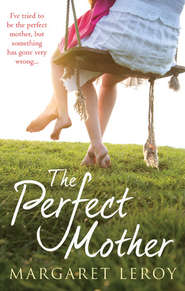По всем вопросам обращайтесь на: info@litportal.ru
(©) 2003-2025.
✖
Some Girls Do
Автор
Год написания книги
2018
Настройки чтения
Размер шрифта
Высота строк
Поля
The system of patrilineal inheritance that is the foundation of any patriarchal system depends on the chastity of women: men have to be sure that their children are indeed their own. The very essence of patriarchy is the notion of sex outside marriage as a property violation. And under patriarchal regimes the risks of unchastity have far outweighed the pleasures of sex outside or before marriage for women. Women have suffered appalling punishments for being unchaste: stoning, clitoridectomy, institutionalization, the loss of their children. Within living memory, unmarried women who fell pregnant were thrown out of the family home and set to scrub floors in grim Church Army hostels.
(#litres_trial_promo) When the punishments for a minor sexual misdemeanour were so draconian, it’s no surprise that women drastically suppressed their delight in sexual expression: it simply wasn’t worth it.
The system of male dominance maybe dying, but the thinking that went with it lingers on. The traditional sexual code is still around – but not in its original brutal form. What we have today is a slim-line fat-free version.
We know we won’t be carted off to institutions for delinquent women if we act on our desires – but we may still feel there’s a price to be paid for the pursuit of sexual pleasure.
We don’t think it’s wrong for women to have sex outside a committed relationship, but we may still feel shame about certain kinds of sex – like one-night stands where afterwards the man doesn’t phone.
We don’t believe you’d be wise to wait till the ring is on your finger: today only born-again virgins from the True Love Waits movement believe you should put off sex till marriage. But we do suspect that relationships last longer if you don’t have sex the first time you go out. (Research shows that this belief is false: the Boston Dating Couples Study found that relationships where people made love the first night were just as likely as others to last.
(#litres_trial_promo))
We don’t consider it sinful for women to sleep with lots of men, but we do suspect that women who pursue pleasure too avidly will mess up their chances of having lasting love affairs, like those fictional bad women who flash their pubic hair at policemen or have sex in lifts with decent married men, and who come to no good in the end. It’s as though there’s an either/or quality about the sexual persona we project – whore or madonna, sleeping around or long-term committed relationships.
We no longer maintain that nice women don’t enjoy sex – yet much of the discussion about date rape is based on a concept of the female body as something that needs defending, of the penis as a dangerous weapon, of intercourse as something he wants to take and she doesn’t want to give, and of sexual negotiation as a struggle between two parties with opposing interests, a struggle around a possession – the woman’s sexuality. All of this is highly reminiscent of the old discourse about virginity.
We no longer believe that a woman who loses her virginity outside marriage is ‘ruined’, but we do believe that coercive sex usually causes permanent psychological ‘damage’ – today’s version of ‘ruin’. Of course, rape can and often does have devastating psychological consequences; but the idea that this damage is inevitable, is quite different to that caused by other kinds of assault, and cannot be repaired, does surely relate back to an antiquated sexual code.
And we know that men aren’t put off by women who initiate sex within an established relationship, who suggest innovative sexual practices they’d like to try, or who sometimes like the man to lie back while they do everything – yet we still believe men are turned off by women who take the lead at the very start of relationships.
Among the women I talked to, the ones who held most strongly to this slimline version of the old sexual code were girls in their early and mid teens. Paradoxically, it’s among the girls in the age group most often advised in their magazines to take direct initiatives that the double standard has most force.
(#litres_trial_promo) Co–existent with the wholesome upfront egalitarian vision of It’s Bliss – Take a deep breath and do it – there’s another darker, older and desperately unequal sexual universe.
GIRLS AND THEIR REPUTATIONS: Inside she’s a Skoda
Chloe is thirteen. She’s a thoughtful, cerebral girl, sometimes dazzlingly articulate. When I talked to her, she’d just started going out with her first boyfriend.
I asked her if girls ask boys out. ‘Yeah, they do,’ she said, ‘but the type of girls that ask boys out, they’re thought of by other girls as tarts. The girls that get really nice boys and have nice relationships at about fifteen are the girls that didn’t run after boys and aren’t sort of tarty, because the boys can respect them.
‘There’s a girl in my class called Lauren. We went to this concert at the boys’ school, and she took down her hair, combed it while she was sitting there, folded her waistband over, pulled her shirt out, tucked her socks down. All the boys were looking at her thinking, “What’s she doing?” She’s very pretty and the boys would all say to themselves, “I don’t like her really, she’s a bit of a show-off”, but to their mates they’d say, “Oh isn’t she nice?” She’s got a bad reputation with the boys, and now she’s never going to get a clear reputation – not after running after them like that. There was a comment that went round the school, I heard it from some boys, “Oh, Lauren: on the outside she’s a Porsche but inside she’s a Skoda … .” ’
Roxanne is a street-wise sixteen year old. There’s a poignant air about her: friends have described her as looking rather like a hungry puppy dog, with a pleading look in her eyes. When I asked her if she’d ever asked a boy out, she said she thought she’d be able to – but she’d never actually done it.
Roxanne already seems to know quite a lot about the darker side of sexual relationships. ‘Some men would just have sex with you and then that’s it,’ she said, ‘just want you for the sex and not want to get to know you, and I think because women find it easy to be intimate with each other and want to be intimate with men, that it’s quite hurtful when someone just wants sex. It’s different when the woman just wants sex and the man just wants sex, ’cos that’s just a quickie, but when the man sort of does it to you, you think, “What’s going on here?” – I’m being used by this person ’cos they don’t want to know, they obviously don’t care whether I feel good about having sex, whether the sex is good for me or whether it hurts me, physically or emotionally …’
Natalie is a nineteen-year-old law student. An elegant young woman with a very contained manner, she sees herself as highly traditional in her courtship behaviour, and likes it that way. ‘I’d never make a first move,’ she said. ‘None of my friends do, none of us have ever.’
When I asked her why she felt so strongly about this, she explained, ‘I can’t stand the idea of someone knowing that I like them when they don’t return it. A lot of times my friend’s said to a lad, “Oh Natalie does like you, she thinks you’re alright,” and they’ll say, “She doesn’t act like it,” and they think I’m really cold towards them. When I was in secondary school, a couple of boys started spreading stories about me and mud like that does stick, it turned out I had this reputation, and I had this string of unsuccessful relationships, and I couldn’t help thinking it was because of that, that they thought that was all I was good for. Now whenever there’s someone I like, I act like I don’t want to know. I have to know that he likes me just that little bit more than I like him, because that way I don’t get hurt as much.
‘I tend to be really offhand. Someone asked for my number the other night, and I was really bitchy actually, I just said, “Yeah, look it up”, and walked off. I wouldn’t have minded going out for a drink, but I think I really really did put him off.’
When Chloe, Roxanne and Natalie talk about courtship, they speak a highly traditional language – a language of being used, of mud that sticks, of girls who act sort of tarty, of playing hard to get to protect yourself from being hurt. These girls all have staunchly feminist mothers: they learnt at their mother’s knee that a woman without a man is like a fish without a bicycle, and The Female Eunuch and The Women’s Room were on their shelves at home. But they talk about their relationships as though all that feminist theorizing never happened. I’m saddened to hear these glittering girls still talking like this.
The sexual world they describe is all about reputations. When Chloe’s pretty friend Lauren hitches up her skirt and unpins her hair at the concert at the boys’ school, she is risking her reputation: and once she’s got a bad reputation, it’ll stick. It’s like that Victorian concept of the unchaste woman as ‘damaged goods’: in this sexual world, what’s done cannot be undone. When the boys in the Fourth Form start spreading stories about Natalie, she worries that her relationships don’t last because boys think sex is all she’s good for. So she learns to behave in ways that she doesn’t like. She calls herself cold, bitchy, and offhand, she’s very off-putting and then regrets it, but still feels a compulsion to abide by the old script because your reputation matters more than whether you get what you want.
Вы ознакомились с фрагментом книги.
Приобретайте полный текст книги у нашего партнера:
Приобретайте полный текст книги у нашего партнера:









